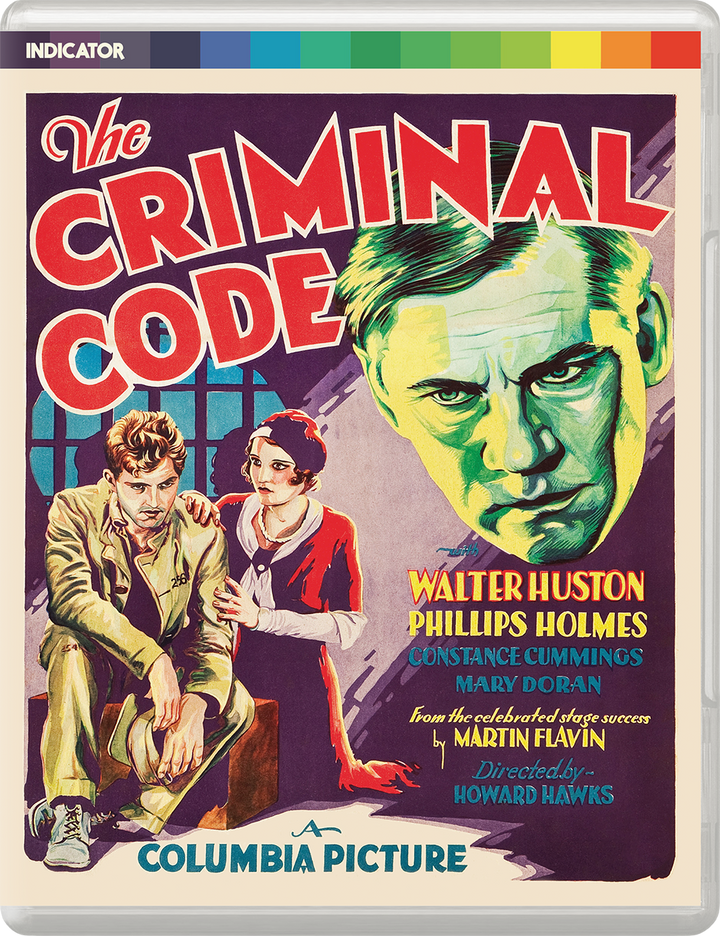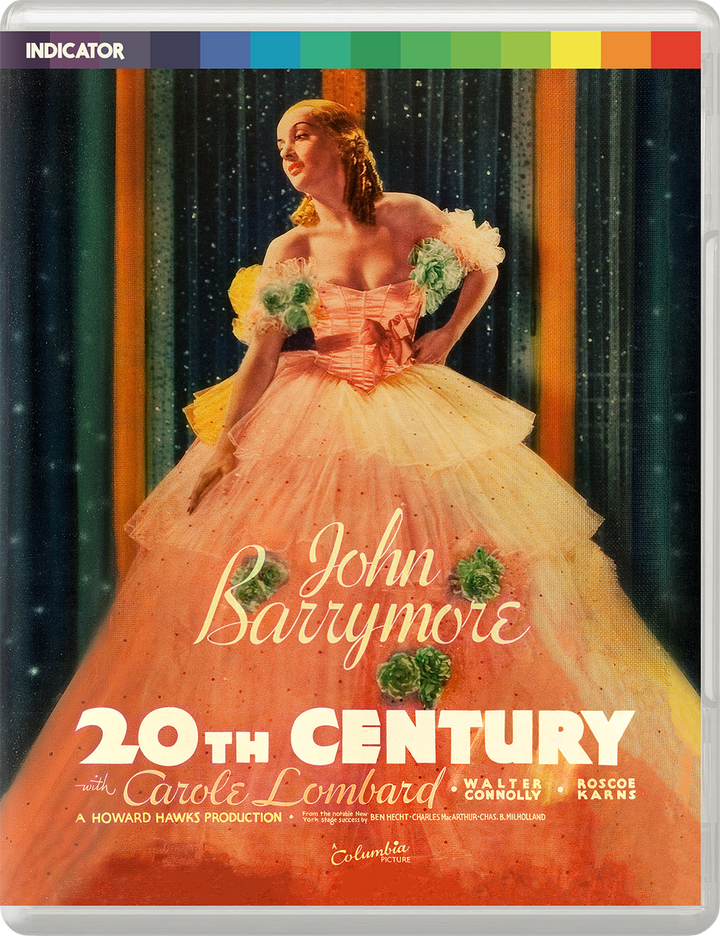therewillbeblus wrote: ↑Wed Jun 03, 2020 12:30 am
Twentieth Century
My favorite Hawks, my favorite pure comedy, and on any given day a contender for sneaking into my all-time top ten list, this loud film is pulsing with an energy far more intricate than it appears. I actually didn’t like this film the first time I saw it, as I was missing the zippy intelligent verbiage of
His Girl Friday and the situational dynamic extravagance of
Bringing Up Baby’s various setpieces. Oh, the miracles of reconsideration! What sets this film apart is that the humor is derived more directly from the loose possibilities of a very certain type of human behavior stemming from an individual vessel, rather than realising the potential in an array of exchanges dependent upon constructed line-readings or setpieces. That doesn’t mean that the thrills here don’t involve more than one party (they do), but the gags hinge on each person giving it their
unhinged ‘all’ and watching a bunch of hungry ferocious beasts collaborate by the nature of placing them together in a cage, like an intentional happy accident, and one that mirrors our crazy social world.
The film embraces these contradictions and is also
about this process through a twisted examination of the potency of human support. Barrymore motivates Lombard into a state of uninhibited confidence, unlocking her potential by supplying an artificial push in a pin-prick. Hawks' comedy doesn’t ask for a complex reading, but I’ll give it anyways: This is a film about the insanity of people fighting for control, resisting influence, and yet through the nature of coexisting and
needing another person as a sounding board for one’s orchestra of emotional projection, they inevitably finance one another’s greatest strengths and horrid weaknesses to wild proportions.
Barrymore finds the optimal method to react to a variable in every scene, flip-flopping in the least self-aware avenues, and Lombard’s own transformation is brilliant as they play off of one another in a never ending one-upmanship of theatrics. The performances are so hammy, and are even better because they are based on the awareness that each
character is giving a performance themself (she learns from the best- “I despise temperament!”). The quieter roles of Barrymore’s associates play ‘roles’ too, just like all people do in a predetermined system governing our socialization. In fact, Walter Connolly has my favorite line in the whole film, derived from his earnest nonchalant willingness to give his own life to please his boss! Even the crazy old man is playing a role- having fun in the only way he can, escaping into a part amidst the deterioration of mental health which is anything but funny outside of a movie. These characters all need an audience to actualize their identities, and through unexpected means this film is reminiscent of Hawks' later works that celebrate paramount participation in life.
If you, like me, think that narcissistic overly dramatic people are hilarious, I implore you to give this film a try, knowing that it is not going to play to the humor many typically find to be ‘smarter’ but I believe is secretly the most intelligent of the bunch (in Hawks’ oeuvre and outside of it). Each revisit I find myself rewinding scenes several times because even when paying full attention I miss a small idiosyncratic detail that contains a new visual joke in someone’s mannerisms. This is the most wonderfully scathing film on the clashing of egos in social engagement, of the repellent magnetism of men and women, and the instinctual power blindly taking over as we attempt to collaborate in passionate activities - work or play - intentionally exaggerated to the greatest extremes to show us what we might look like from an alien’s perspective. It’s also a film that we are allowed not to see ourselves in, to identify with people we know or the sheer potential a human being can have to express themselves, to trick another, and to fake their way through an interaction to get what they want. Who hasn’t detected a passive-aggressive move like Jaffe’s early ‘attempt’ before, and yet who has had the guts to call one on it like Lombard does?
What appears to be an outlier is actually perfectly emblematic of Hawks’ interests. As a comedy, the film aligns with his ideal definition of humor as derived from non-humorous situations (the actors make the lines funny, but they aren’t funny themselves) more than any of his other comedies; and as a film, or a dramatization of life, it simultaneously celebrates collaborative practice while skewering the individualistic inanity that it costs to get there. Barrymore may be an egoist and a control-freak, but he also feels a genuine pleasure from creating a work with a partner in Lombard’s starlet. Collectivism may produce great work, but it can be pretty hollow when composed of repelling parts. Or maybe that's just part of the games we're all playing, in one way or another, all the time. This is the joke of life, and the cyclical nature of the film ending where it began is a perfect crown to cement that Sisyphean process that is infectiously beautiful as a depraved emotional rollercoaster. Absurd, sure, but one hell of a fun ride!
And if you don’t like it, you’re Judas, and it’s curtains for ya.

